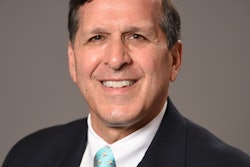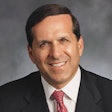
As if the continued challenge of ongoing staff shortages and high employee turnover rates wasn't enough, there is a reported deep disconnect between employers and employees that threaten to make the situation more dire, according to a new U.S. workplace survey.
Employees reported they are under a great deal of financial stress and that employers aren't doing enough, especially in terms of compensation. Meanwhile, employers reported that workers" "insatiable" desire for more is unsustainable, but it may be employers who are "out of sync" with employees' needs, according to Franklin Templeton's "Voice of the American Workplace Survey."
"By gaining a deeper understanding of employee desires, employers can effectively create loyalty and attract top talent," according to the results.
Since the COVID-19 pandemic, practices have continued to face shortages of dental hygienists and assistants. Though these challenges had already existed, the pandemic exacerbated the problem, affecting patient volumes, collections, and access to care.
The survey, which aimed to gain insights into employer and employee perspectives to better align available resources with expectations, was conducted in November 2023. It included 1,000 U.S. employer respondents who were employers who influenced company benefits and/or were hiring at organizations with more than 100 employees. Also, 2,001 U.S. adults who were employed and had retirement savings were included in the study.
In 2023, 91% of employers had turnover rates surpassing 10% due to heightened employee expectations, and 82% of employers expressed concerns about dealing with employees who seek more compensation, according to the results.
On the other hand, employees deem financial health more important than mental and physical health. About 60% reported that the current economic climate jeopardizes their financial independence, and they felt that financial milestones were out of reach, according to the survey.
Given the rising cost of living and job market uncertainty, employers need to proactively support their workforce. Providing financial resources such as educational programs and access to advice can assist employees in managing their finances effectively while boosting dental team retention.
Additionally, employees reported that they preferred higher pay and a 401(k) match versus better health and dental insurance, health savings accounts, and charitable contributions that employers assumed they wanted.
Despite that disconnect, 49% of employers are providing employees with access to financial wellness platforms. However, 28% of workers aren't using them and about 70% admitted to not understanding their benefits, according to the results.
Moreover, effective communication of available resources and emphasizing the comprehensive value of compensation and benefits packages are crucial steps for organizations to take to combat the dental staffing shortage in 2024, according to Franklin Templeton.




















